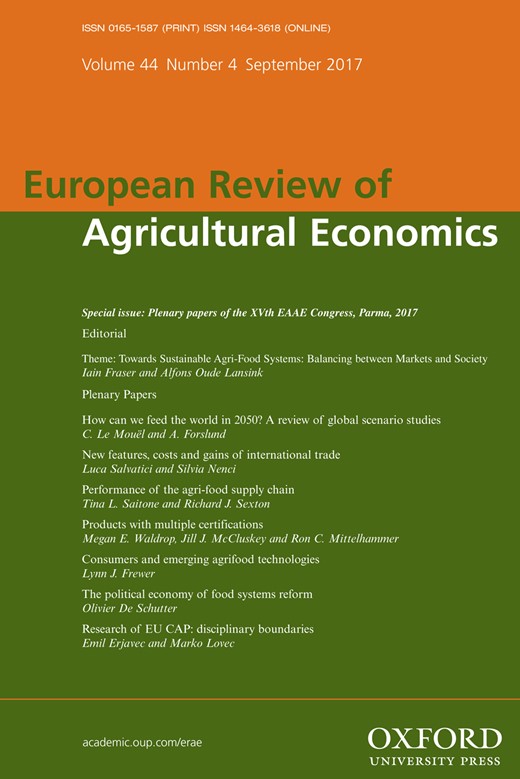-
Views
-
Cite
Cite
Olivier De Schutter, The political economy of food systems reform, European Review of Agricultural Economics, Volume 44, Issue 4, September 2017, Pages 705–731, https://doi.org/10.1093/erae/jbx009
Close - Share Icon Share
Abstract
Modern food systems as they have developed over the past half-century are unsustainable: their health and environmental impacts, as well as their failure to reduce rural poverty in developing countries and the power imbalances in food chains, are a concern to a growing number of activists. However, the mainstream system is highly path-dependent, and resistant to reform. Change can be expected neither from government action, nor from business initiatives alone, and grassroots innovations led by ordinary people have a limited impact. Only by connecting these different pathways for reform by food democracy can lasting food systems reform be achieved.




